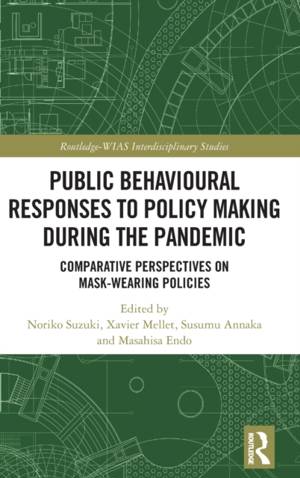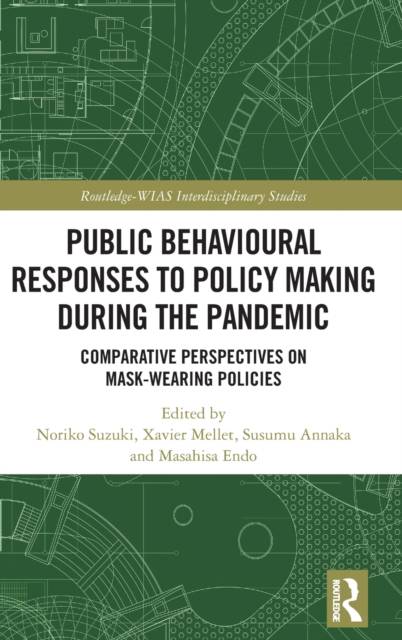
- Retrait gratuit dans votre magasin Club
- 7.000.000 titres dans notre catalogue
- Payer en toute sécurité
- Toujours un magasin près de chez vous
- Retrait gratuit dans votre magasin Club
- 7.000.0000 titres dans notre catalogue
- Payer en toute sécurité
- Toujours un magasin près de chez vous
Public Behavioural Responses to Policy Making During the Pandemic
Comparative Perspectives on Mask-Wearing Policies
Description
This book provides a comparative study of people's mask-wearing behaviour in response to government policies between European-Northern America and Asian countries.
Examining citizens' attitudes towards their state during the COVID-19 pandemic from the perspectives of history, linguistics, politics, economics and sociology, the contributors in this volume explore to what extent people accept the wearing of masks in countries where governments have made it mandatory as compared to countries where people wear masks voluntarily. The book thus looks at mask-wearing from a political dichotomy between authoritarianism and liberalism and posits the extent to which political divisions could have existed in public opinion over the measures taken against COVID-19.
Filled with invaluable insights through research in 13 countries, this book will appeal to readers in policy making and influencing public opinion via the Europe-Asia comparative study.
Spécifications
Parties prenantes
- Editeur:
Contenu
- Nombre de pages :
- 254
- Langue:
- Anglais
- Collection :
Caractéristiques
- EAN:
- 9781032154275
- Date de parution :
- 30-11-22
- Format:
- Livre relié
- Format numérique:
- Genaaid
- Dimensions :
- 156 mm x 234 mm
- Poids :
- 557 g

Les avis
Nous publions uniquement les avis qui respectent les conditions requises. Consultez nos conditions pour les avis.





